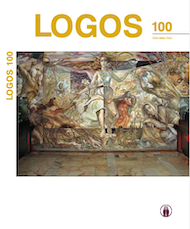Dekonstruojant ideologemą: ką reiškia Lietuvos „grįžimo į Vakarus “ tezė?
Deconstructing the Ideologem: What Does „Lithuania’s Return To the West“ Thesis Mean?
Author(s): Vytautas RadžvilasSubject(s): Political Philosophy, International relations/trade, Security and defense, EU-Accession / EU-DEvelopment, Geopolitics, Politics and Identity
Published by: Visuomeninė organizacija »LOGOS«
Keywords: „Return To the West Thesis“; ideologem; liberal democracy; free market; national identity;
Summary/Abstract: The article analyzes the thesis of „Lithuania’s return to the West.“ „Lithuania’s return to the West“ was assumed to mean the attainment of memberships in the EU and NATO, since these transatlantic structures were considered paramount for country’s long term geopolitical security and economic prosperity. After both goals were achieved, a thesis that Lithuania was successful in “returning to the West” became deeply ingrained in official discourse and public opinion, and became an unquestionable foundational ideologem of the academic discourse on Euro-Atlantic integration. The content of this thesis, however, has never been rigorously and critically analyzed. Certain fundamental questions pertinent to the proper conceptual understanding of the thesis, such as what the term „West“ means and what does it mean for a post-communist country to “return to the West” after a post-communist transformation, have not been raised and discussed in the academic literature. The Global financial crisis of 2008, the disintegration tendencies within the EU, and the weakening of Transatlantic relations are serious existential threats for the Lithuanian state. These challenges motivate a more thorough analysis which aims to uncover the theoretical and ideological underpinnings of “Lithuania’s return to the West” thesis. The paper explores the implications of this thesis by interpreting it as prescribing the realization of the state progress strategy “Lithuania 2030”, which has been approved in 2012. The analysis reveals that “Lithuania’s return to the West”, if construed as an aim to create a “global Lithuania” in accordance with the ideological premises of the “Lithuania 2030” strategy, implies the end of Lithuania as an ethnic and linguistic community, as well as the end of Lithuania as a politically and historically independent nation state.
Journal: LOGOS - A Journal of Religion, Philosophy, Comparative Cultural Studies and Art
- Issue Year: 2019
- Issue No: 100
- Page Range: 114-126
- Page Count: 13
- Language: Lithuanian

